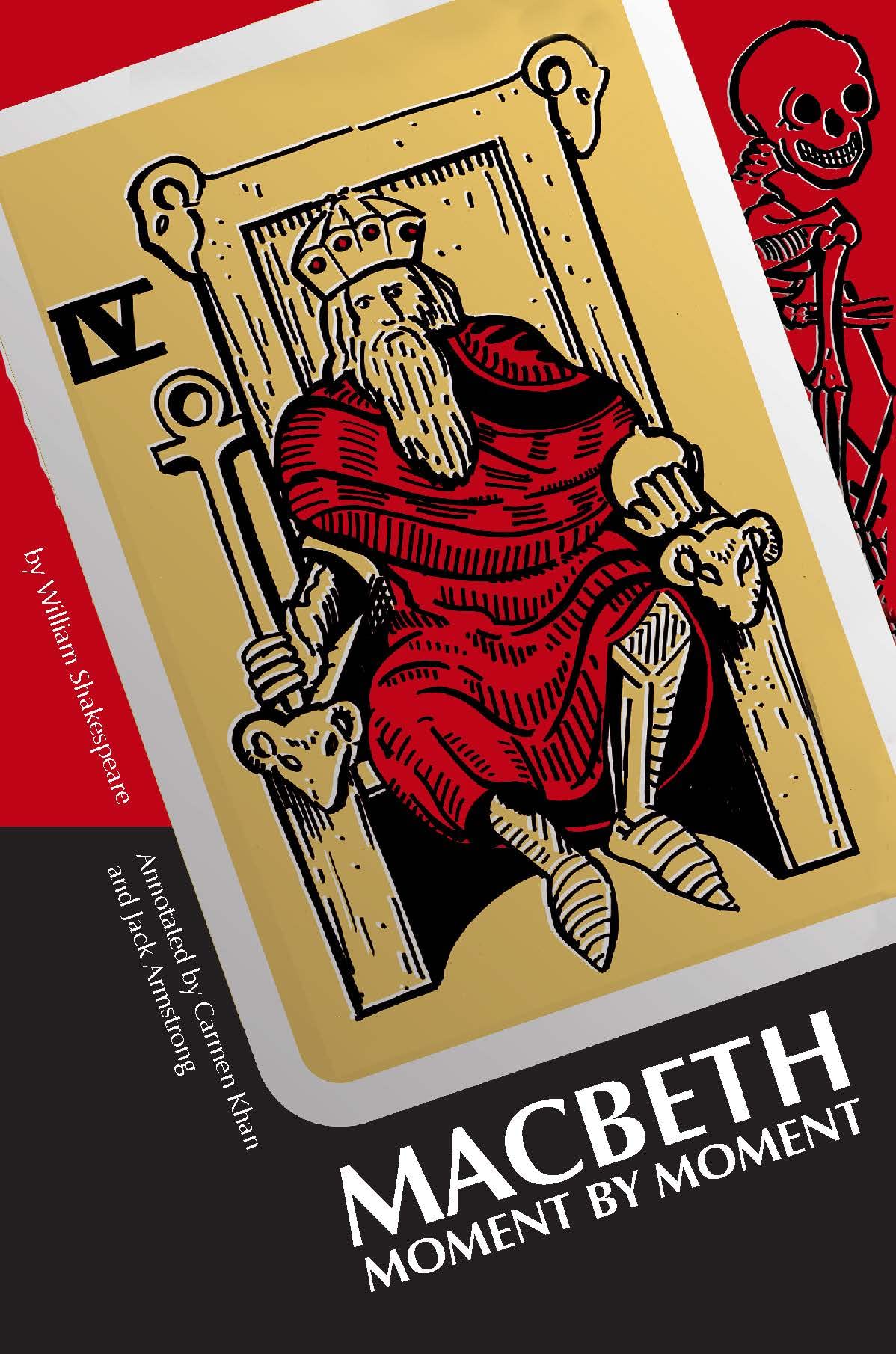Macbeth Book Summary
TL;DR
Macbeth, a tragedy by William Shakespeare, explores the destructive power of ambition as a Scottish general, spurred by prophecy and his wife, murders to secure the throne, leading to his ultimate downfall.
What is Macbeth about
"Macbeth" delves into themes of ambition, power, and moral corruption. The play follows the story of Macbeth, a valiant Scottish general who encounters three witches that prophesy his rise to the throne. Driven by their predictions and his wife's manipulative encouragement, Macbeth commits regicide, killing King Duncan to usurp the crown. However, his ascension to power spirals into paranoia and tyranny as he commits further atrocities to secure his position. The narrative unfolds amidst the backdrop of civil unrest and supernatural elements, highlighting the tragic consequences of unchecked ambition and moral decay.
Macbeth 5 Key Takeaways
The Prophecy
Macbeth encounters three witches who foretell his rise to kingship, igniting his latent ambition and setting the tragic events in motion.
Regicide
Spurred by his wife, Macbeth murders King Duncan in a bid to claim the throne, marking the beginning of his moral degradation.
The Descent into Paranoia
Post-murder, Macbeth becomes increasingly paranoid, leading him to commit further atrocities, including the murder of his friend Banquo.
Civil War
As Macbeth's tyranny grows, Scotland descends into civil war, with forces rallying against him, intensifying the chaos and bloodshed.
The Downfall
Ultimately, Macbeth faces retribution as he is confronted by the avenging forces, leading to his death and the restoration of order in Scotland.
Top Macbeth Quotes
- "Out, out brief candle! Life's but a walking shadow, a poor player that struts and frets his hour upon the stage."
- "Fair is foul, and foul is fair: Hover through the fog and filthy air."
- "I am in blood, Stepped in so far that should I wade no more, Returning were as tedious as go o'er."
Who should read Macbeth?
"Macbeth" is ideal for readers interested in classic literature, psychology, and the complexities of human nature. It offers profound insights into the dark side of ambition and the moral dilemmas faced by individuals in pursuit of power, making it a compelling read for both students and literary enthusiasts.
Macbeth Best Reviews
- "Macbeth is a timeless exploration of ambition and its ramifications, showcasing Shakespeare's profound understanding of the human psyche." - Literary Review
- "This dark and intense tragedy remains relevant, revealing the destructive nature of power and the consequences of moral corruption." - The Guardian
People also liked these summaries
Macbeth FAQs
What are the main themes of Macbeth?
The main themes include ambition, fate vs. free will, guilt, and the supernatural. These elements intertwine to explore the consequences of unchecked ambition and moral corruption.
Is Macbeth suitable for modern audiences?
Yes, despite being written in the early 17th century, Macbeth's themes of ambition, power, and betrayal remain relevant, making it accessible and resonant for contemporary readers.
